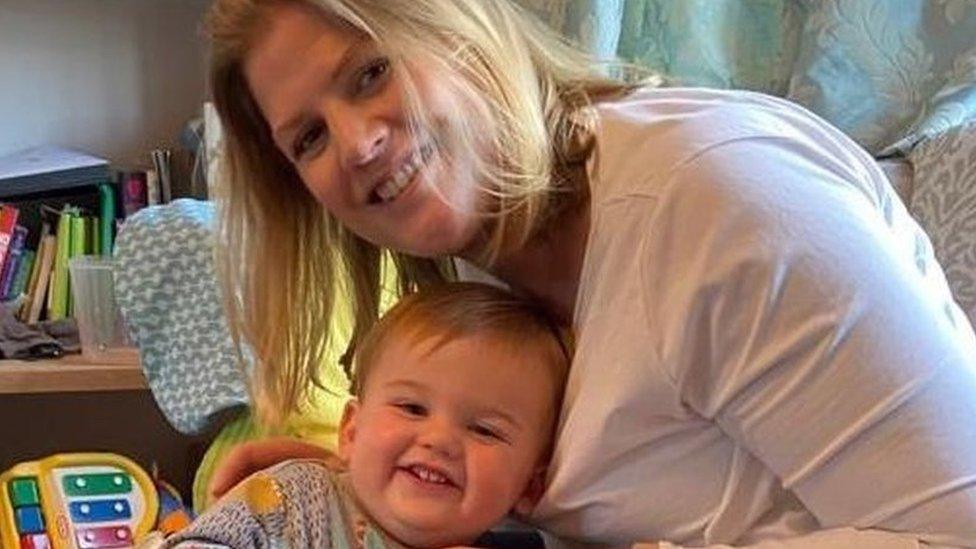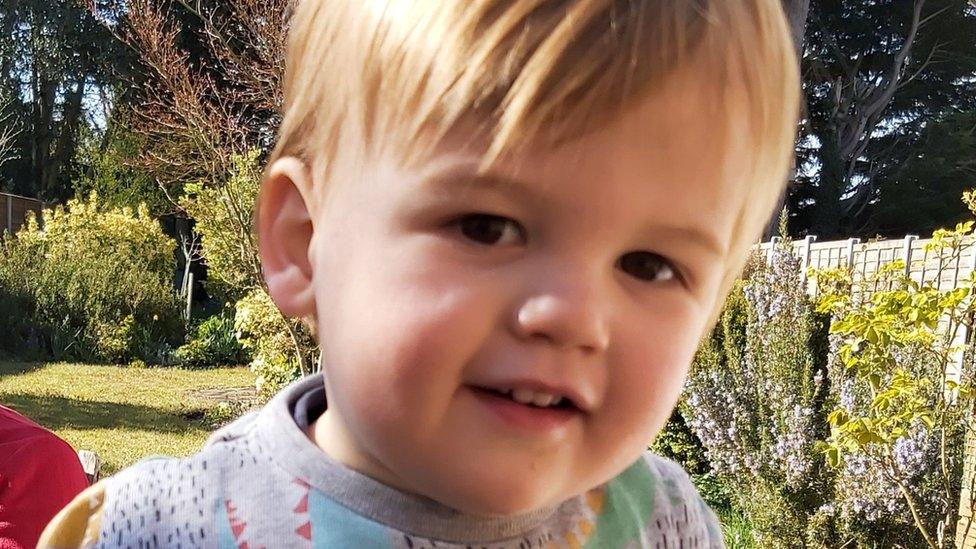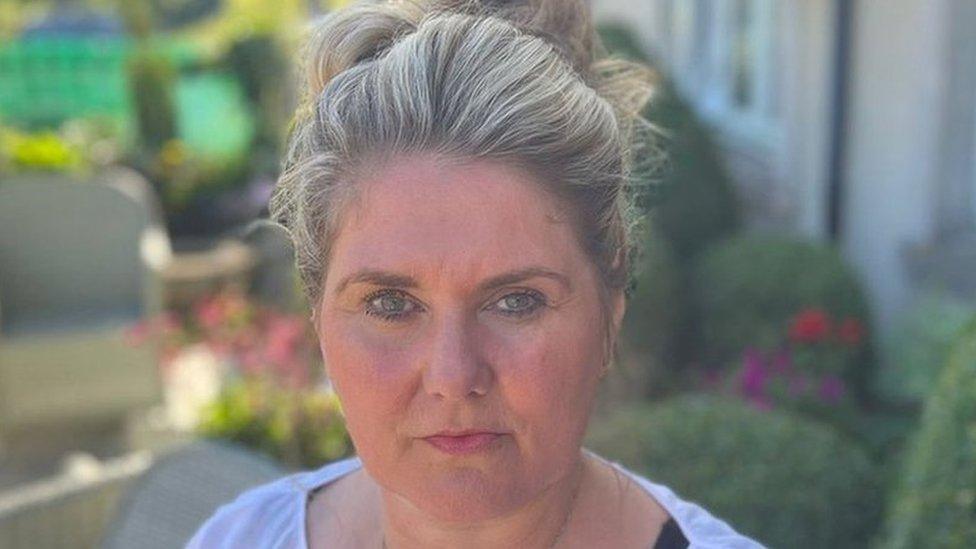Sudden unexplained death in childhood debated in Parliament
- Published
'Not knowing why my son died is an added trauma'
The issue of children dying unexpectedly and without any known cause has been debated in Parliament for the first time.
Sudden unexplained death in childhood (SUDC) is a rare category of death in which the cause remains unknown even after thorough investigation.
Currently there is very little awareness or research into its causes.
Former Chancellor Kwasi Kwarteng, who led the debate, external, said SUDC had not had the attention it deserved.
In his first speech as a backbencher for six years, he said it was important to not shy away from discussing "something that is incredibly difficult to deal with, emotionally very taxing, and one of the most serious medical phenomena".
SUDC is among one of the leading categories of death in England and Wales for children aged between one and four.
He said: "Imagine a death of a child, who has all his or her life in front of them, suddenly ended. If you can imagine that and if you can imagine that for one of your own children you can get a sense of how tragic and how difficult that occurrence is."
William died after having a seizure which couldn't be explained
Many of the MPs who attended paid tributes to their constituents who had contacted them about the unexplained deaths of their children.
Lib Dem MP Tim Farron said one mother had told him: "It clouds everything you do, feel and breathe. I hate that it happened to him and not me."
He added: "It's such an uncomfortable issue but it is important to grasp uncomfortable issues to honour those who had died and prevent future deaths."

Sudden unexplained death in childhood
SUDC covers children aged one and above
Although the number of deaths is difficult to determine, it is estimated that about 40 children over the age of one die suddenly every year - more than young child deaths from traffic accidents, fires or drowning
Office of National Statistics data from 2020 and 2021 shows SUDC is the fourth leading category of death in one to four-year-olds in England and Wales
As with cot deaths, most SUDC cases occur during sleep
It is estimated about a third of SUDC cases involve children who have had febrile seizures
Source: NHS England / SUDC Charity, external

The MPs were united in their call for more research to be carried out; only 55 research papers have been published worldwide into SUDC, whereas 12,000 have been conducted into Sudden Infant Death Syndrome (SIDS), a condition also known as cot death. Since the early 1990s there has been an 80% reduction in these deaths.
They also called for the NHS website to be updated to include information about SUDC and for there to be more training for medical practitioners.
The debate heard many children whose deaths have been classed as SUDC had febrile seizures. However, the link between febrile seizures and SUDC has not been proved.
Mr Farron said children receiving medical care for febrile seizures should be seen as a red flag.
Neil O'Brien, the minister for primary care and public health, said of the 204 unexpected and sudden deaths of children reviewed by child death overview panels in 2022, 32 were classified as unexplained.
He said the National Child Mortality Database, external, which was established in 2018, aimed to systematically capture information about every child death and was working with the NHS to track modifiable factors.
The minister said every area in the country had child death overview panels, which were responsible for reviewing information on all child deaths and looking for patterns and service improvements.
He added the University of Bristol had been contacted to discuss potential research priorities.
The NHS Children and Young People Programme, external was reviewing patient information to make sure it was relevant and appropriate, he added.

If you have been affected by the issues raised in this story, help and support is available via the BBC Action Line

Follow BBC London on Facebook, external, Twitter , externaland Instagram, external. Send your story ideas to hellobbclondon@bbc.co.uk, external
- Published20 June 2022

- Published15 October 2022

- Published8 October 2022

- Published18 June 2022

- Published10 March 2021
